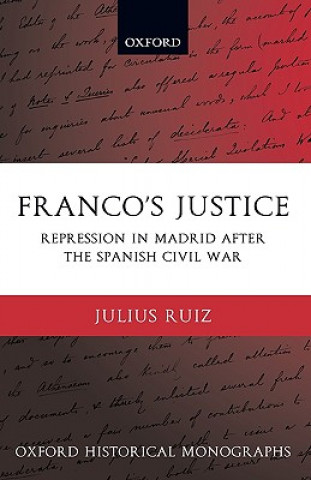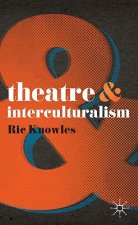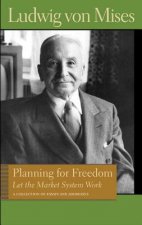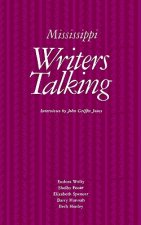
Kód: 04531595
Franco's Justice
Autor Julius Ruiz
Madrid became one of the key symbols of Republican resistance to General Franco during the Spanish Civil War following the Nationalists' failure to take the city in the winter of 1936-7. Yet despite the defiant cries of 'No pasara ... celý popis
- Jazyk:
 Angličtina
Angličtina - Vazba: Pevná
- Počet stran: 269
Nakladatelství: Oxford University Press, 2005
- Více informací o knize

Mohlo by se vám také líbit
-

Let's Go: 6: Workbook
491 Kč -

Theatre and Interculturalism
409 Kč -

Planning for Freedom: Let the Market System Work
310 Kč -

Mississippi Writers Talking
1206 Kč -

Busy Swimming
121 Kč -

New Way White Level Pack 1 without Words
573 Kč -

Control of Volatile Organic Compound Emissions - Conventional and Emerging Technologies
6473 Kč
Darujte tuto knihu ještě dnes
- Objednejte knihu a zvolte Zaslat jako dárek.
- Obratem obdržíte darovací poukaz na knihu, který můžete ihned předat obdarovanému.
- Knihu zašleme na adresu obdarovaného, o nic se nestaráte.
Více informací o knize Franco's Justice
Nákupem získáte 770 bodů
 Anotace knihy
Anotace knihy
Madrid became one of the key symbols of Republican resistance to General Franco during the Spanish Civil War following the Nationalists' failure to take the city in the winter of 1936-7. Yet despite the defiant cries of 'No pasaran', they did eventually pass on 28 March 1939. This book examines the consequences in Madrid of Franco's unconditional victory in the Spanish Civil War. Using recently available archival material, this study shows how the punishment of the vanquished was based on a cruel irony - Republicans, not the military rebels of July 1936, were held responsible for the fratricidal conflict. Military tribunals handed out sentences for the crime of 'military rebellion'; mere passivity towards the Nationalists before 1939 was not only made a civil offence under the Law of Political Responsibilities but could cause dismissal from work; and freemasons and Communists, specifically blamed for the Civil War, were criminalized by decree in March 1940. However, contrary to much that has been written on the subject, the post-war Francoist repression was not exterminatory. Genocide did not take place in post-war Madrid. While a minimum of 3113 judicial executions took place between 1939 and 1944, death sentences were largely based on accusations of participation in 'blood crimes' that occured in Madrid in 1936. Moreover, and unlike most other accounts of the Francoist political violence, this book is concerned with the question of when and why mass repression came to an end. It shows that the sheer numbers of cases opened against Republican 'rebels', and the use of complex pre-war bureaucratic procedures to process them, produced a crisis that was only resolved by decisions taken by the Franco regime in 1940-1 to abandon much of the repressive system. By 1944, mass repression had come to an end.
 Parametry knihy
Parametry knihy
Zařazení knihy Knihy v angličtině Humanities History Regional & national history
7699 Kč
- Plný název: Franco's Justice
- Podnázev: Repression in Madrid after the Spanish Civil War
- Autor: Julius Ruiz
- Jazyk:
 Angličtina
Angličtina - Vazba: Pevná
- Počet stran: 269
- EAN: 9780199281831
- ISBN: 0199281831
- ID: 04531595
- Nakladatelství: Oxford University Press
- Hmotnost: 405 g
- Rozměry: 223 × 145 × 20 mm
- Datum vydání: 28. July 2005
Oblíbené z jiného soudku
-

Hundred Years' War on Palestine
356 Kč -

Ethnic Cleansing of Palestine
378 Kč -

History of Japan
403 Kč -

Ten Myths About Israel
341 Kč -

Strange Death of Europe
433 Kč -

Decline and Fall of the Roman Empire
139 Kč -

Secret History
302 Kč -

God's Playground A History of Poland
1699 Kč -

Mayflower
401 Kč -

How to be a Victorian
302 Kč -

Plantagenets
356 Kč -

General's Son
424 Kč -

Iran: A Very Short Introduction
283 Kč -

Temples of Karnak
3798 Kč -

Cuneiform
276 Kč -

Twenty Years A-Growing
249 Kč -

China in Africa
906 Kč -

Bohemian Paris
415 Kč -

Islandman
282 Kč -

History of Witchcraft in England from 1558 to 1718
460 Kč -

Lancaster And York
493 Kč -

Alexiad
440 Kč -

Inside Hitler's Greece
517 Kč -

Modern France: A Very Short Introduction
336 Kč -

Diana: Her True Story - In Her Own Words
323 Kč -

The Fourth Turning
476 Kč -

The Oxford History of Ancient Egypt
383 Kč -

Churchill: The Power of Words
433 Kč -

Palestine
564 Kč -

Korean History in Maps
706 Kč -

Great Gatsby (Wisehouse Classics Edition)
406 Kč -

Viking Way
1267 Kč -

The Thirteenth Tribe
309 Kč -

My Promised Land
378 Kč -

Vanished Kingdoms
542 Kč -

Age Of Revolution
410 Kč -

Life and Death of Anne Boleyn
584 Kč -

Coming of the Third Reich
463 Kč -

Children of Ash and Elm
487 Kč -

Europe Between the Oceans
799 Kč -

Socialism Betrayed
478 Kč -

303 Squadron
463 Kč -

Ancient Celts, Second Edition
655 Kč -

Dancing in the Glory of Monsters
400 Kč -

Battle of Britain: Luftwaffe Blitz (Images of War)
655 Kč -

Age of Confucian Rule
851 Kč -

Beyond Band of Brothers
410 Kč -

Benjamin Franklin
410 Kč -

On China
487 Kč
Osobní odběr Praha, Brno a 12903 dalších
Copyright ©2008-24 nejlevnejsi-knihy.cz Všechna práva vyhrazenaSoukromíCookies



 Vrácení do měsíce
Vrácení do měsíce 571 999 099 (8-15.30h)
571 999 099 (8-15.30h)